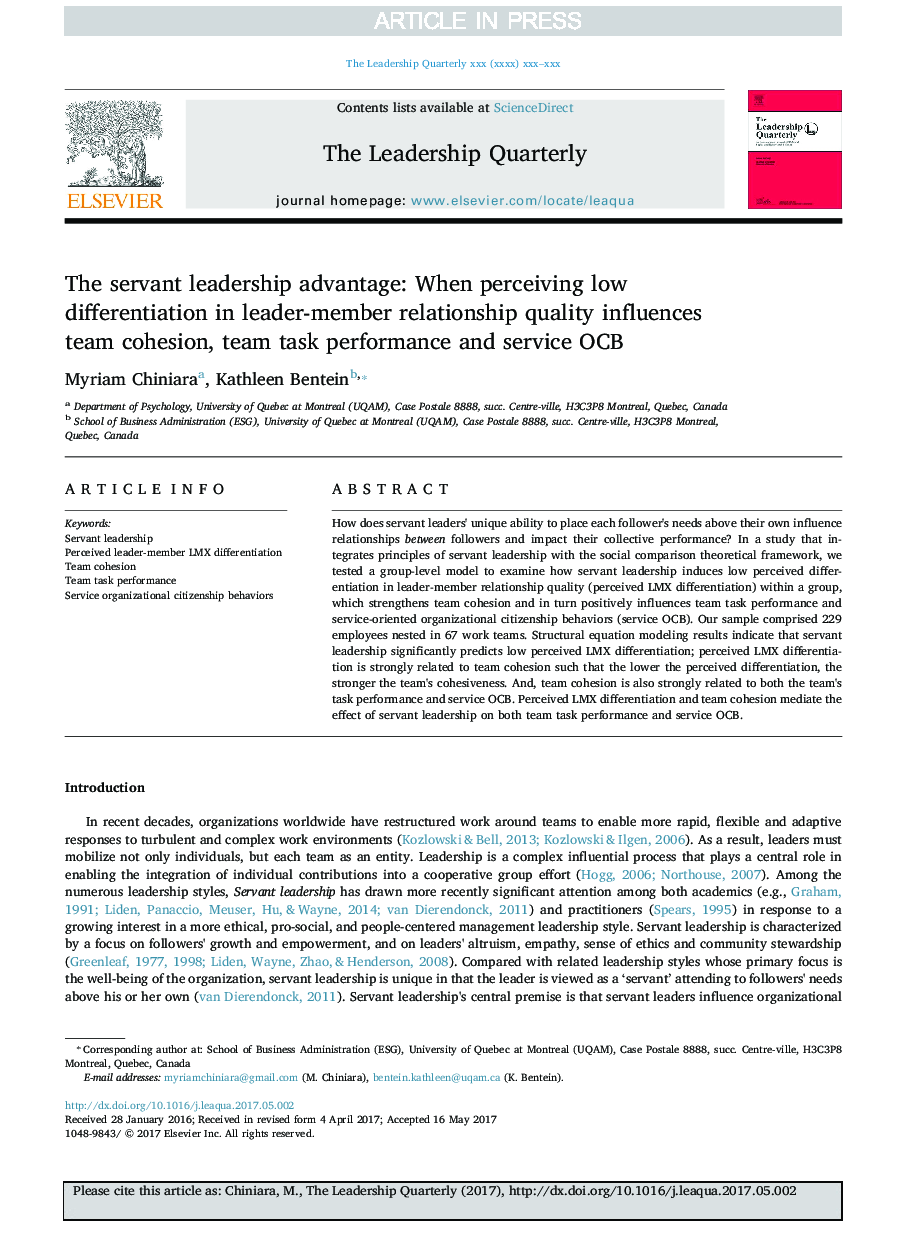| Article ID | Journal | Published Year | Pages | File Type |
|---|---|---|---|---|
| 7247824 | The Leadership Quarterly | 2018 | 16 Pages |
Abstract
How does servant leaders' unique ability to place each follower's needs above their own influence relationships between followers and impact their collective performance? In a study that integrates principles of servant leadership with the social comparison theoretical framework, we tested a group-level model to examine how servant leadership induces low perceived differentiation in leader-member relationship quality (perceived LMX differentiation) within a group, which strengthens team cohesion and in turn positively influences team task performance and service-oriented organizational citizenship behaviors (service OCB). Our sample comprised 229 employees nested in 67 work teams. Structural equation modeling results indicate that servant leadership significantly predicts low perceived LMX differentiation; perceived LMX differentiation is strongly related to team cohesion such that the lower the perceived differentiation, the stronger the team's cohesiveness. And, team cohesion is also strongly related to both the team's task performance and service OCB. Perceived LMX differentiation and team cohesion mediate the effect of servant leadership on both team task performance and service OCB.
Keywords
Related Topics
Social Sciences and Humanities
Business, Management and Accounting
Business and International Management
Authors
Myriam Chiniara, Kathleen Bentein,
